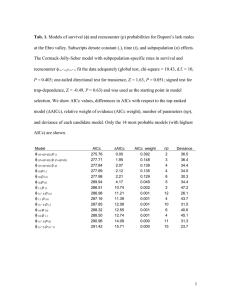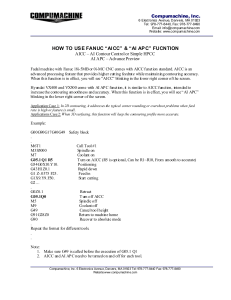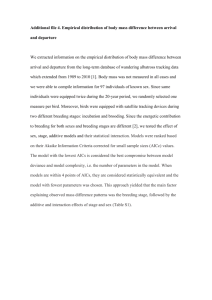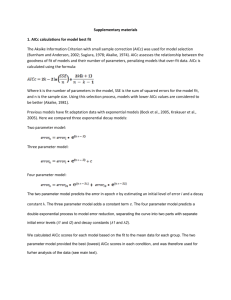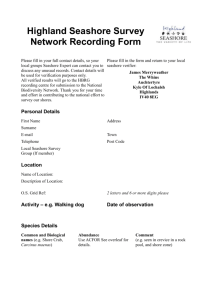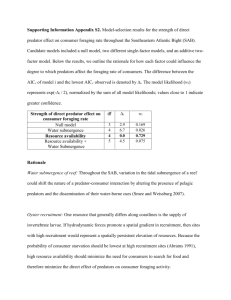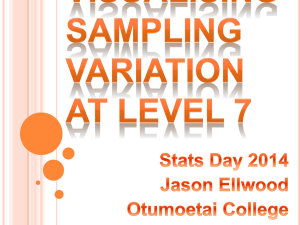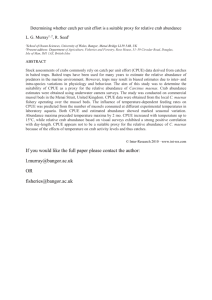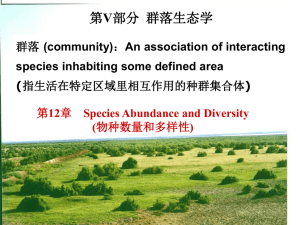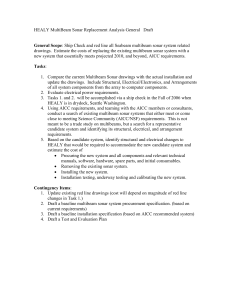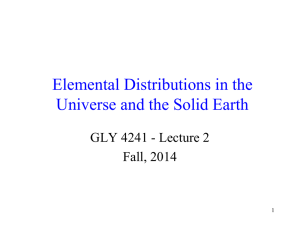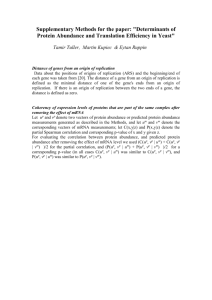S3_Table. Summary of model-selection results for the biomass of
advertisement
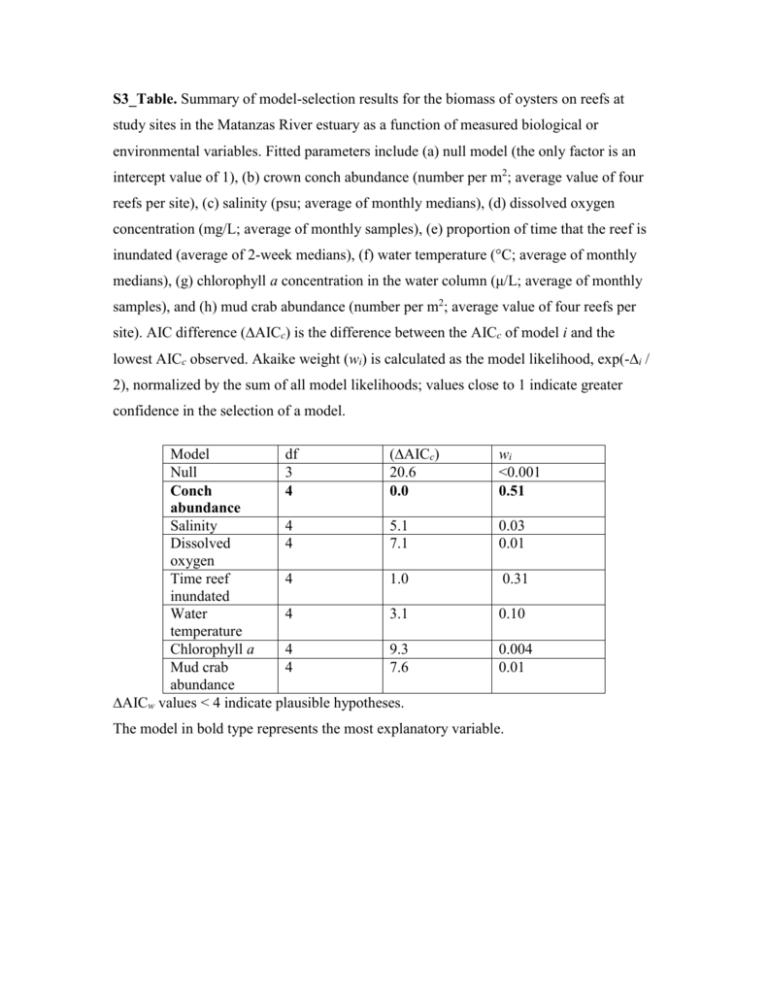
S3_Table. Summary of model-selection results for the biomass of oysters on reefs at study sites in the Matanzas River estuary as a function of measured biological or environmental variables. Fitted parameters include (a) null model (the only factor is an intercept value of 1), (b) crown conch abundance (number per m2; average value of four reefs per site), (c) salinity (psu; average of monthly medians), (d) dissolved oxygen concentration (mg/L; average of monthly samples), (e) proportion of time that the reef is inundated (average of 2-week medians), (f) water temperature (°C; average of monthly medians), (g) chlorophyll a concentration in the water column (μ/L; average of monthly samples), and (h) mud crab abundance (number per m2; average value of four reefs per site). AIC difference (∆AICc) is the difference between the AICc of model i and the lowest AICc observed. Akaike weight (wi) is calculated as the model likelihood, exp(-∆i / 2), normalized by the sum of all model likelihoods; values close to 1 indicate greater confidence in the selection of a model. Model df (∆AICc) Null 3 20.6 Conch 4 0.0 abundance Salinity 4 5.1 Dissolved 4 7.1 oxygen Time reef 4 1.0 inundated Water 4 3.1 temperature Chlorophyll a 4 9.3 Mud crab 4 7.6 abundance ∆AICw values < 4 indicate plausible hypotheses. wi <0.001 0.51 0.03 0.01 0.31 0.10 0.004 0.01 The model in bold type represents the most explanatory variable.
